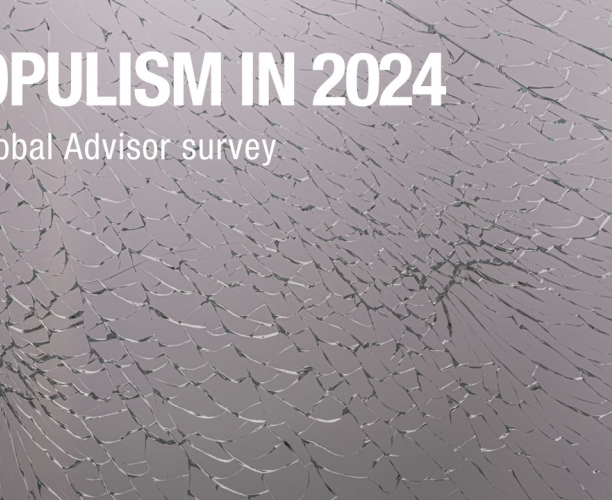

Most say Britain is in decline, against a backdrop of anti-system sentiment
A new survey conducted by Ipsos across 28 countries reveals strong disillusionment with the political and economic systems, in Great Britain and around the world. After a likely rallying-around period during the pandemic, Britain started 2024 feeling that the country is declining while suspicion of elites and experts are widespread.
Read the key findingsDownload full report
Key findings
- Over two thirds in Britain (68%) say the country is in decline, above the 28-country average of 58% in our latest survey. It also marks a sharp increase since 2021 when only 48%, but still a plurality, agreed that the country was in decline.
- This pessimism comes against a backdrop of widespread anti-system sentiment. Seven in 10 (70%) of Britons agree the economy is rigged to advantage the rich and powerful, and 66% say traditional parties and politicians don’t care about people like them, while 71% say the political and economic elite don't care about hard-working people, same as in 2022, but up from 63% in 2021.
- Anti-elite feelings continue to be strong, with 66% in Britain saying elites are a closely connected group of people with similar interests and views on important issues. And half (50%) in Britain think elites make decisions based on their own interests over the needs of the rest of the people in their country, with only 31% saying elites genuinely believe their decisions are in the best interests of most people even if that isn’t often the case, and only one in ten (10%) say elites tend to make decisions that are in the best interest of most people in the country.
- Suspicion extends to experts, with 64% agreeing that experts in Britain don’t understand the lives of people, an increase since 2021 when 56% said the same.
- While pessimistic views of the system and those making decisions are similar if not more negative in Britain as in other countries surveyed, nativist views are generally weaker in Britain than average. Across the 28 countries, more agree their country would be stronger if immigration was stopped (43%) than disagree (28%), while in Britain the pattern is somewhat reversed, with 34% agreeing and 42% disagreeing.
- Yet a plurality in Britain (46%) favour employers prioritising hiring people from the UK when jobs are scarce over immigrants, though substantially lower than the 28-country average of 59%.
- Majorities of Brits agree spending should increase on a range of areas, with support highest for increased spending on healthcare (77%), public safety (69%) and reducing poverty and inequality (64%). The public are also supportive of increased spending on education (63%), infrastructure (62%) and creating jobs (56%), but are split on whether spending on defence should increase (40%) or stay the same (35%).
- Support for increased public spending doesn’t translate into a desire for increased taxes, with only 28% agreeing the government should increase taxes to pay for additional public spending, with 40% disagreeing. The lack of appetite for higher taxation is seen across the 28 countries surveyed, with 19% on average wanting higher taxes.
Gideon Skinner, Head of Political Research at Ipsos says:
Going into an election year, we find that Britain, much like other countries, is facing disillusionment with the political and economic system. Whichever party wins the next general election will face the challenge of turning around a widespread declinist sentiment and feelings that traditional parties and politicians do not deliver for Britons.
About the study
Ipsos interviewed 20,630 people online in the following countries between November 22 and December 06, 2023. Quotas were set to ensure representativeness and data have been weighted to the known population profile of each country. The sample consists of approximately 1,000 individuals each in Australia, Brazil, Canada, France, Germany, Great Britain, Italy, Japan, Spain, and the U.S., and 500 individuals each in Argentina, Belgium, Chile, Colombia, Hungary, Indonesia, Malaysia, Mexico, the Netherlands, Peru, Poland, Singapore, South Africa, South Korea, Sweden, Thailand, and Turkey. The sample in India consists of approximately 2,200 individuals, of whom approximately 1,800 were interviewed face-to-face and 400 were interviewed online.
Download the full report for a detailed methodology.



